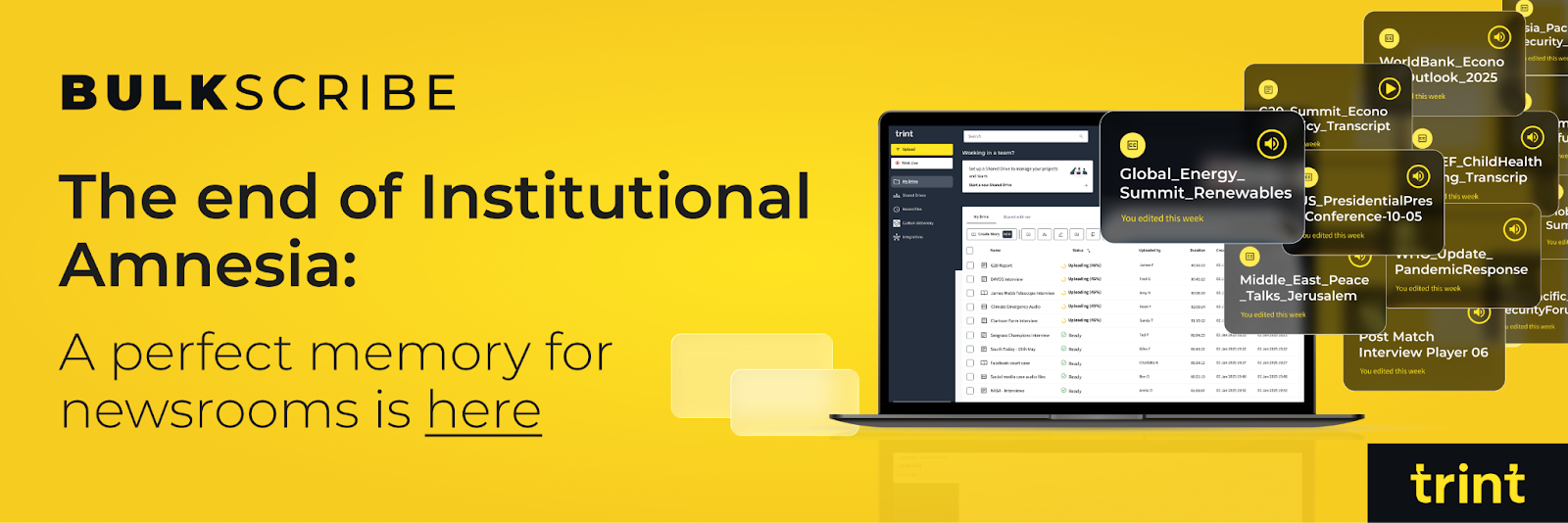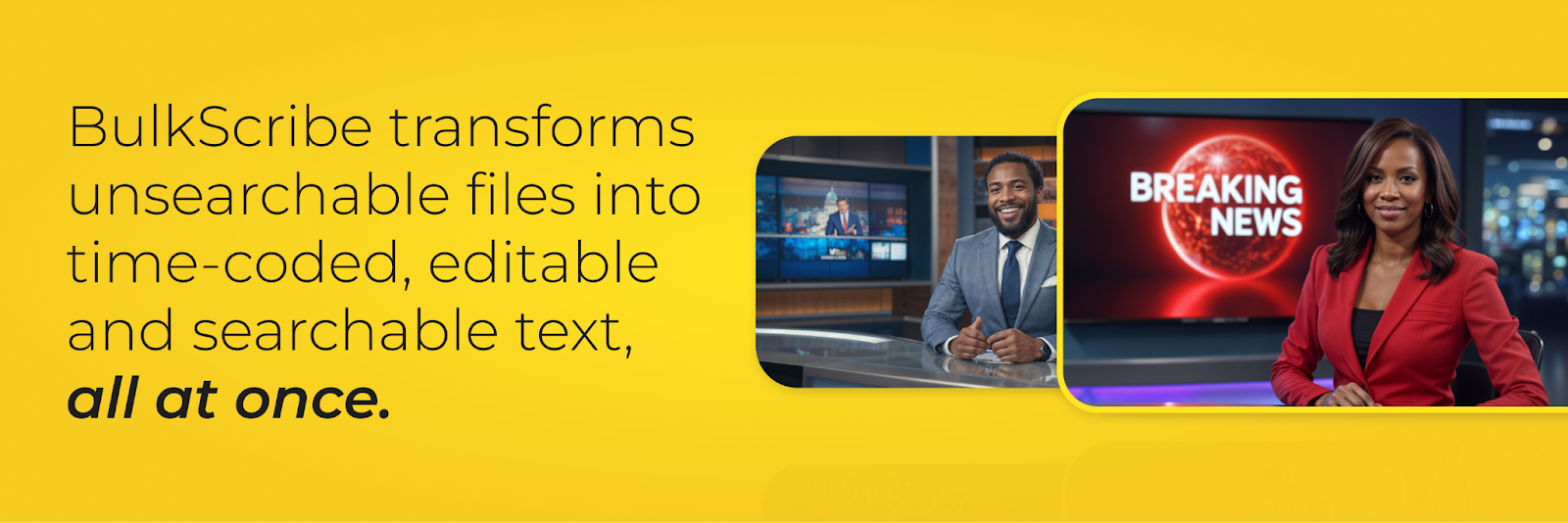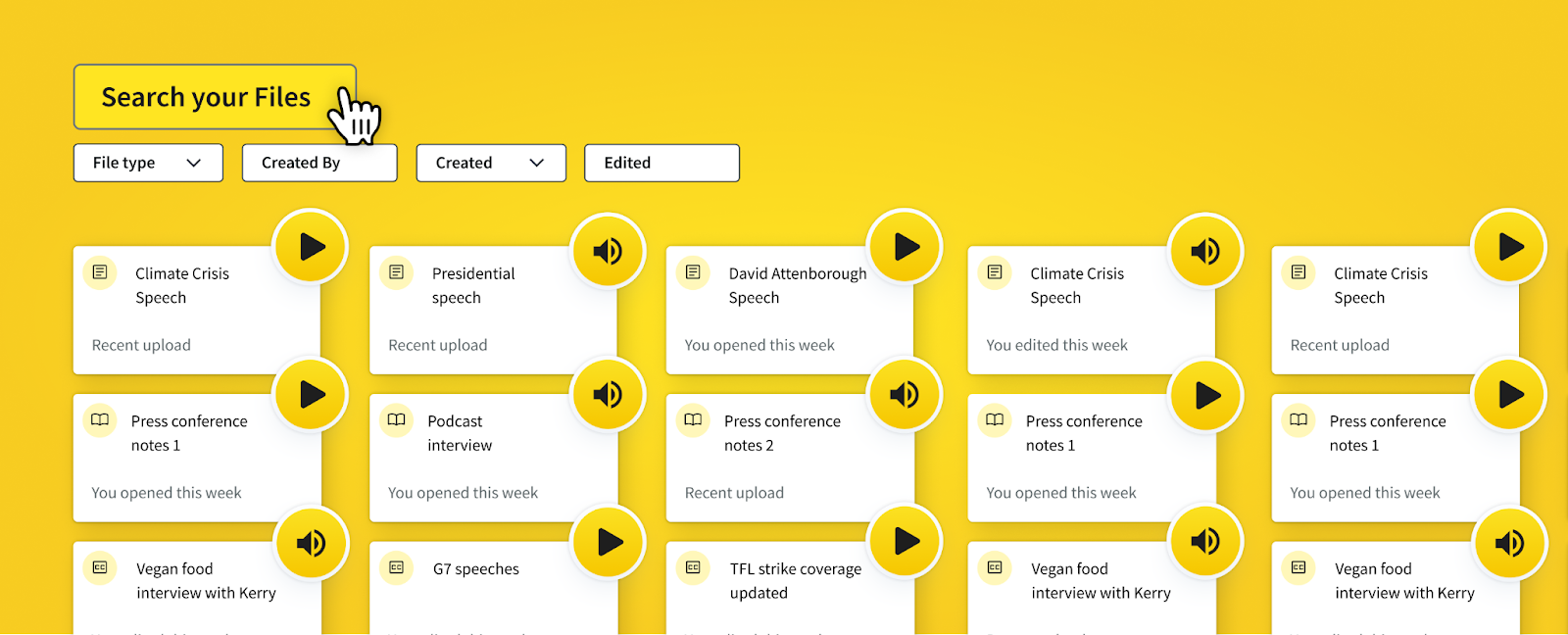
Institutional knowledge is the invisible backbone of high quality journalism. It’s the veteran reporter’s list of sensitive sources, the Editor’s deep understanding of local history, and the collective memory of decades of coverage.
Yet, this backbone is under constant threat. When an experienced journalist walks out the door, they don't just take their desk clutter; they take years of context, contacts, and nuanced understanding that is often simply stored in their head or, critically, buried in unsearchable media archives.
That ten year old audio recording of a key city council meeting, the raw video footage from a historic protest, or the hours of interview tapes from an investigative series - when this content isn't searchable, it’s basically lost. It remains a massive, unindexed vault of history, leaving new and even existing staff reliant on fragmented memories or time-consuming manual searches.
And the cost is real: missed connections and opportunities in the story, unnecessary effort in re-researching old ground, and a weakened ability to provide the deep, contextual reporting that differentiates a great news publication.
![Quote – “If you can compress all those years of knowledge you have sitting within your archives, that's going to make [you] a better reporter, a quicker reporter, a more knowledgeable reporter." David Carson, John S. Knight Journalism Fellow, Stanford University](/assets/7b650ca06021502ccd5c8b92819e40fb6f84e7b3.png)
While AI has been helping organizations more efficiently transcribe their latest interviews and press conferences for a number of years, the archives have remained untouched. Until now.
The good news is that we now have the technology to protect a newsroom’s institutional memory. At Trint, our BulkScribe feature now enables news organizations to transcribe entire libraries of audio and video in one fell swoop - so all those years (or even decades!) of unsearchable files can now transform into time-coded, editable, and searchable text, all at once.
So you end up with a perfect memory for your newsroom - and no more worries about the loss of knowledge. A new reporter on the environment beat can instantly search a decade of recorded interviews with key climate scientists, community leaders, and government officials. They stop relying on fragmented notes or hearsay and gain instant, direct access to the primary source material, accelerating their path to expertise.

As well as plugging the memory gap, newsrooms bulk transcribing their archives and libraries are benefitting in many other ways:
Investigative teams can use cross-archive search to instantly identify every mention of a person, organization, or recurring event across hundreds of raw footage files. This ability to link disparate pieces of information quickly allows for richer, more robust contextual reporting. Endless hours of searching for the needle in a haystack just became a few seconds of searching.
An indexed archive is a powerful reservoir of evergreen content. Looking for a quote for a 10-year anniversary retrospective? Or need to verify a political leader’s comments from years ago? Or simply want to pull relevant soundbites for a new podcast series? A searchable transcript makes it effortless. This allows you to re-monetize or re-engage audiences with historic, high-value content that was previously locked away.
Bulk transcription eliminates the need for expensive, time-consuming manual transcription services for archival material. Furthermore, the searchability can help your IT and Finance teams by identifying and removing redundant or low-value files, thereby optimizing costly cloud storage that can spiral out of control. They’ll love you for it!

The collective wisdom of your newsroom is your competitive edge. It’s too valuable to be left to chance. By adopting modern AI tools like BulkScribe, news broadcasters, newspapers, and wire services can halt the decay of institutional knowledge. Instead, you can transform your static archives into a living, intelligent, and highly valuable knowledge hub that empowers every single journalist - veteran or newbie - to produce deeper, faster, and more impactful journalism.